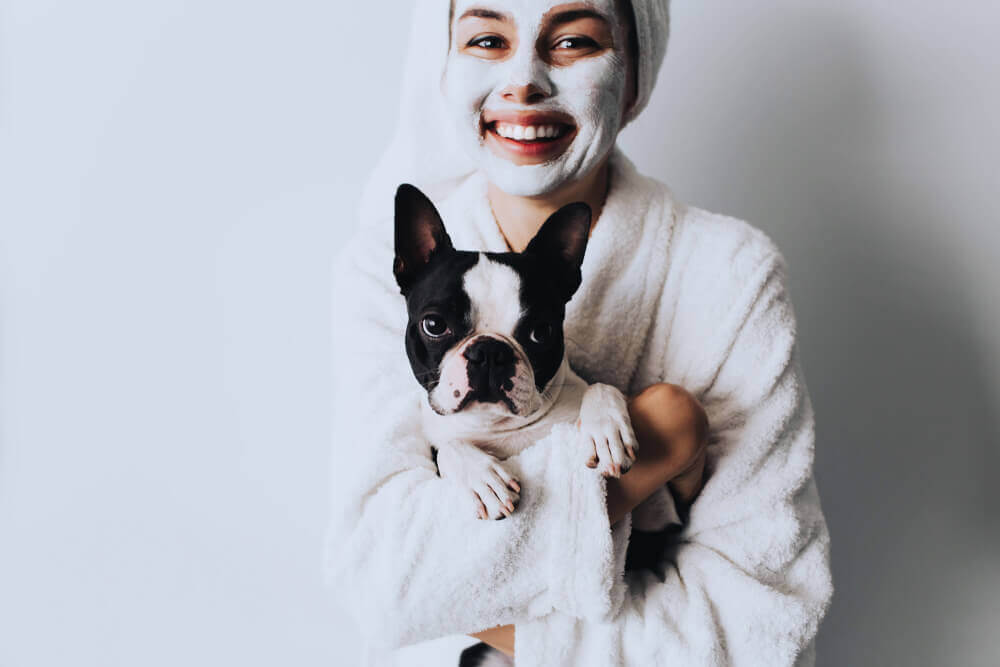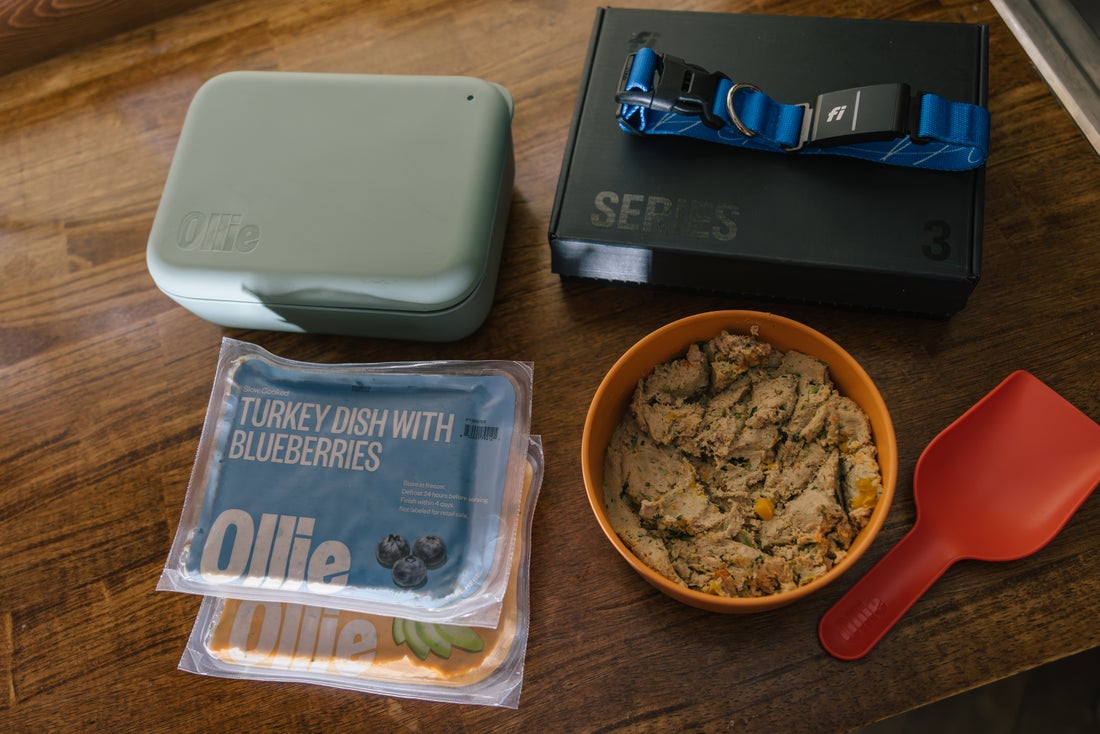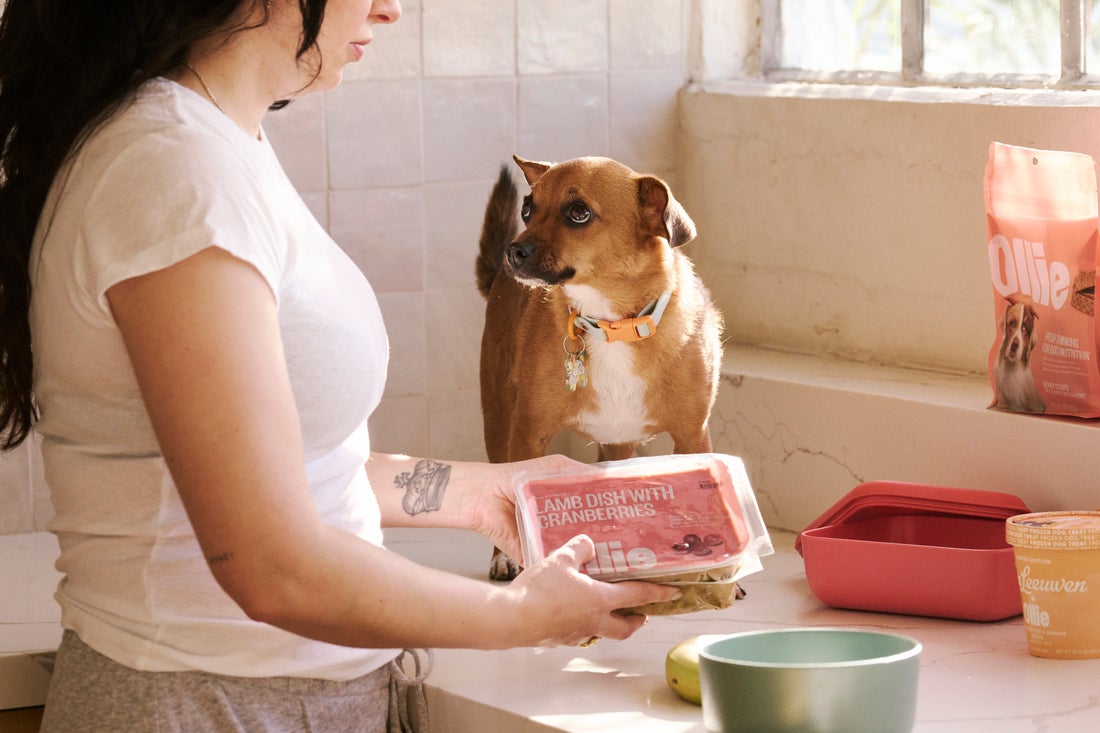Hey Ollie blog readers! We’re offering you an exclusive 60% OFF your starter box! Try now!
“Canine acne is an inflammatory disorder of the lips and the skin of the muzzle. Dogs with mild cases of acne often have red bumps or pustules (pimples) on their skin. This can, in more severe cases, lead to generalized swelling of the lips and muzzle, bleeding wounds, or scabs on the face. Left untreated, severe cases of canine acne can result in permanent scarring.” explains Dr. Catherine Barnette of VCA Animal Hospitals.
Just like in humans, canine acne can range from completely harmless to fairly serious and requires medical treatment. Why do some dogs get acne and how do you keep it under control? Read on to learn about the causes and treatment for acne in dogs.
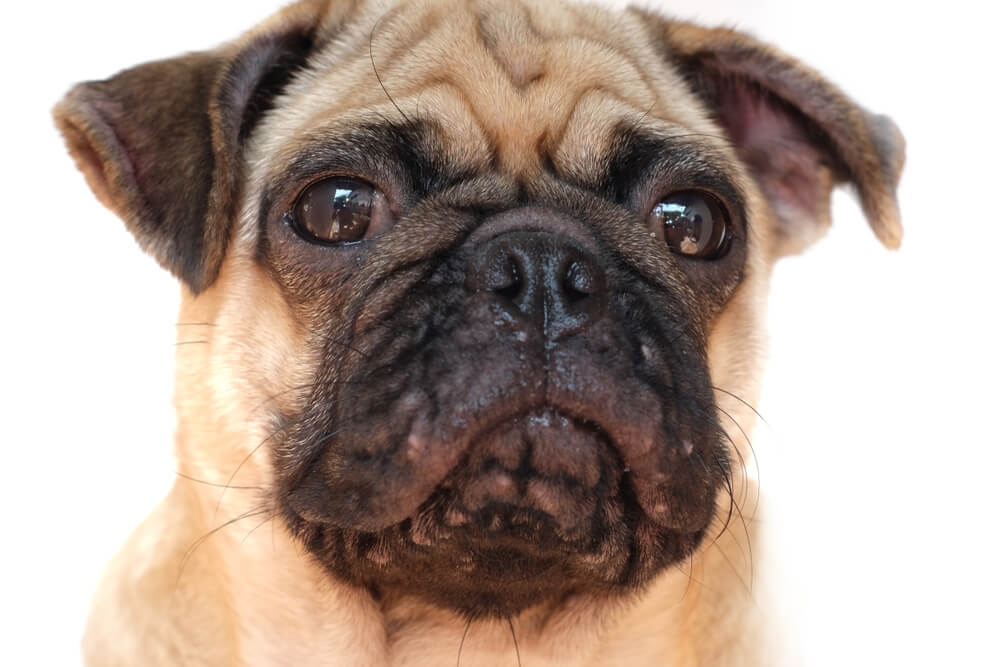
Causes of acne in dogs
Acne is usually caused by trauma to the mouth or chin that leads to irritation of the hair follicles. Short-haired dogs like boxers, bulldogs, and Great Danes are most prone to getting acne.
Like in humans, acne can also be caused by clogged pores. Just like we produce an oily substance called sebum that can clog our pores, so do our dogs. This is one of the main culprits of acne. This doesn’t mean that you need to take your pup with you to your next facial appointment – but that could be a lot of fun! Some groomers offer a blueberry facial that is designed with your furry friend in mind. The treatment is exfoliating and moisturizing and can help with tear stains as well. If you think your best friend might enjoy the extra pampering, go ahead and ask at your next grooming appointment.
Acne in dogs is not always believed to be caused by hormones but it does tend to affect puppies around 4-8 months old. Most puppies who get acne find that their faces are cleared up by the time they turn one year old. There are some dogs who will suffer from acne their whole lives but this seems to be the exception, not the rule.
Other causes of acne could be an allergic reaction or poor hygiene. Keep your pup clean and keep up with grooming appointments or baths at home. Make sure you’re regularly keeping your pup’s bowls and toys nice and clean. Metal bowls especially should be washed and dried thoroughly on a regular basis or you might notice some acne along your pup’s mouth or chin.
Is acne in dogs a problem?
Usually, it is not a big problem. Acne is a benign condition. Some dogs will experience some discomfort as acne can be itchy or a little painful. If the pimples pop (open) they can bleed a little which probably doesn’t feel good. It also makes your pup susceptible to infection – which can be a larger issue.
If you suspect that your dog is uncomfortable, seek medical attention immediately so they can get treatment and start feeling better fast.
Like in humans some dogs who are prone to acne may experience some more serious issues. This is especially true if your dog scratches his face and the pimples open or become infected. When you take your pup to the vet, they may ask some questions or perform a biopsy. This is to rule out other skin conditions including cancer. There are other skin conditions that can look similar to acne which is why you want to make sure to get your pup checked out if their acne is chronic, recurring or not resolving with treatment. Even if the biopsy comes back as just acne, the vet might be able to identify the specific bacteria that is causing it and prescribe an antibiotic to treat it.
The other thing to keep in mind is that if the ‘acne’ feels hard or is growing larger – you should have that checked out. Better to be safe then sorry if it is a small tumor or growth. If something looks or feels off the peace of mind that you’ve had something more serious ruled out should be comforting. You don’t want to have to worry or constantly check.
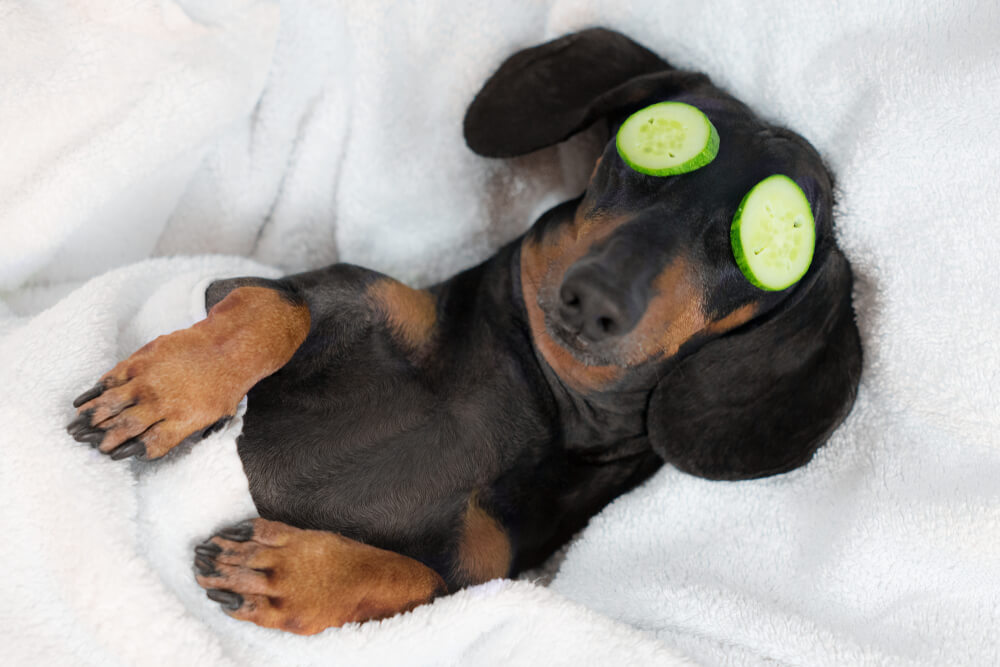
Treatments for acne in dogs
Most acne is treated with topical benzoyl peroxide. This is available over the counter or through your vet’s office. Make sure to consult your vet before using this or any other product to treat your pup’s acne. In most cases, this should be enough to clear things up.
If benzoyl peroxide doesn’t work for your pet, the vet might offer you some other treatments. These include steroids or antibiotics. Steroids are used to reduce inflammation. They might be prescribed for your pup to take orally or you might get a topical steroid to put on your pup. Popular options include prednisone or prednisolone, betamethasone or fluocinolone. Some pups may even get a prescription for Retin-A to help make changes to the hair follicle.
Antibiotics are another treatment option depending on why your pup is breaking out. Oral antibiotics may be given anywhere from four to eight weeks. You’ll want to watch for any side effects and give your pup all medications as directed by your vet. If you see side effects, call your vet immediately to discuss the next steps.
Ways to prevent acne
First of all, you should resist the urge to pop your pup’s pimples! Do not try to become a home version of Dr. Pimple Popper – you could cause more harm than good. Like in humans it can be uncomfortable and generally does not lead to anything good. If you do give them a squeeze, you run the risk of rupturing the hair follicle which will lead to more inflammation – exactly what you’re trying to avoid!
The other thing you want to do is try to identify the source of any trauma to your pup’s chin so you can eliminate it. The most common forms of trauma include something scratching your pup’s face, rooting around in the dirt with their chins or eating out of a plastic dish that has rough edges. You should also check your dog’s toys to see if any of them are causing trauma to their face.
The Ollie blog is devoted to helping pet parents lead healthier lives with their pups. If you want to learn more about our fresh, human-grade food, check out MyOllie.com.
Tagged As:

The nutrition your dog needs,
the food they want.

Enjoying our articles? Subscribe our Newsletters and get new articles directly to your inbox
You might also like
18 September 2025
5 MINS READ
Can I Rotate Fresh Dog Food Flavors?
Yes, it’s safe to rotate fresh dog food flavors, and many dogs actually benefit from the variety. At Ollie, we offer multiple fresh recipes, like Beef, Chicken, Turkey, Lamb, and Pork so you can…
by Ollie Pets
18 September 2025
5 MINS READ
Is Fresh Dog Food Safe During Power Outages?
Fresh dog food is only safe during a power outage if it has stayed cold, specifically, below 40°F. Once the temperature rises above that point, bacteria can start to grow, and the food may no lon…
by Ollie Pets
18 September 2025
5 MINS READ
How Do I Store Fresh Dog Food While Traveling?
If you’re bringing fresh dog food on the road, keeping it cold is key. The best way to store it is in a cooler with ice packs or a travel freezer. At Ollie, our vacuum-sealed fresh food stays good…
by Ollie Pets
